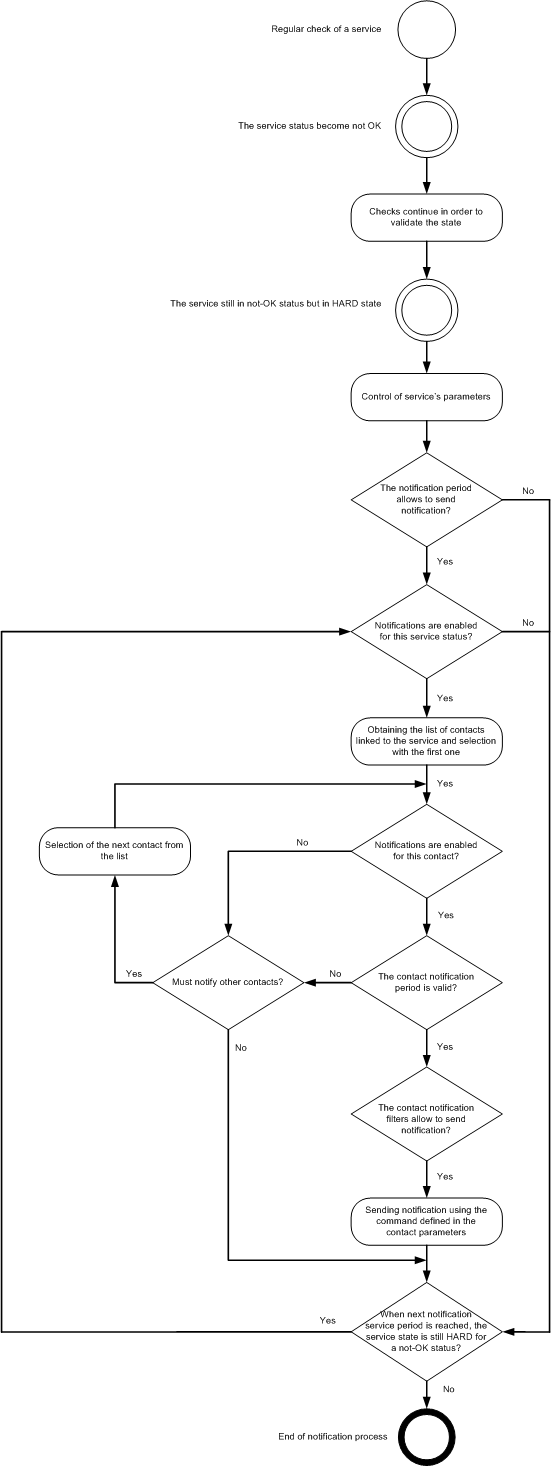How notifications work
Before a contact can be notified in Centreon, it is necessary to go through several steps. If no notification escalation is defined, the notification management process is standard. It is described below:
- A service (or a host) is checked at regular intervals according to the check period defined for it (In the case of a passive service, we wait for the status of the service to change)
- If an anomaly occurs (Not-OK status), the service (or the host) goes into the SOFT state
- After the Max Check Attempts has taken place and if the service (or the host) persists in retaining its Not-OK status its state changes from SOFT to HARD. The monitoring engine caches the notification number to the service (or the host): i.e. 0.
At each notification interval of the service (or the host) and until the end of the Not-OK status, the monitoring engine performs the following operations:
- The monitoring engine checks that the notification period defined for the service (or the host) allows the notification for the service (or the host) when is switched into the HARD state. If the answer is yes, we go to the next step otherwise we wait for period defined for the service (or the host) to allow notification.
- The monitoring engine checks that the notification is enabled to the current status of the service (or of the host)
For every contact associated with the service (or the host):
-
The monitoring engine checks several settings:
- Is notification to this contact enabled?
- Does the notification period defined for the contact allow notification?
- Is the contact configured to be notified of the current status of the service (or the host)?
-
If these three conditions are confirmed, the monitoring engine alerts the contact using the notifications script defined for the service or the host.
-
The monitoring engine increments the notification number by 1
The diagram below summarizes the notifications management in Centreon:
